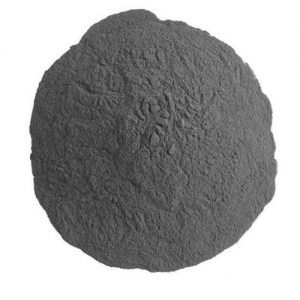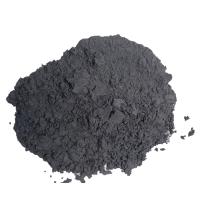Tantalum chloride, also known by its chemical formula TaCl5, is a versatile compound with various applications in different industries. Tantalum itself is a rare and valuable metal known for its exceptional corrosion resistance and high melting point, and tantalum chloride is one of the primary forms in which tantalum is used. In this article, we will explore the properties and uses of tantalum chloride.

Properties of Tantalum Chloride:
Tantalum chloride is a white, crystalline solid that is highly soluble in common organic solvents like ethanol and ether. It has a high boiling point and emits toxic fumes when exposed to air. Tantalum chloride is moisture sensitive and reacts with water to produce hydrochloric acid and tantalum oxide, which makes it important to handle with care.
Uses of Tantalum Chloride:
Chemical Synthesis and Catalysts:
Tantalum chloride serves as a precursor in the synthesis of various tantalum compounds. It is used to produce tantalum pentoxide (Ta2O5), which finds applications in the electronics industry as a high-k dielectric material in capacitors. Tantalum chloride is also employed as a catalyst in organic reactions, such as the Friedel-Crafts acylation and alkylation reactions, due to its Lewis acid properties.
Semiconductor Industry:
The semiconductor industry extensively utilizes tantalum chloride for the deposition of thin tantalum films. These films are crucial for the fabrication of high-performance integrated circuits and other electronic devices. Tantalum chloride, in combination with other precursors, is employed in chemical vapor deposition (CVD) and atomic layer deposition (ALD) processes to create uniform and conformal tantalum layers on semiconductor substrates.
Surface Treatment:
Tantalum chloride is used in surface treatment applications, particularly for the modification of metals. It can be employed as a corrosion inhibitor and protective coating on steel and other metals, enhancing their resistance to chemical attack and increasing their lifespan. Tantalum chloride is also utilized as a surface modifier for materials like glass, imparting unique properties such as hydrophobicity or increased adhesion.
Organic Synthesis and Pharmaceuticals:
The Lewis acid nature of tantalum chloride makes it valuable in various organic synthesis reactions. It can be used as a catalyst or reagent in processes such as hydroamination, hydroaminoalkylation, and carbonylation. Additionally, tantalum chloride is utilized in the pharmaceutical industry for the production of tantalum-based drugs and diagnostic agents. Its unique properties enable the creation of compounds with specific interactions and properties that are beneficial for medical applications.
Research and Development:
Tantalum chloride is an important tool in scientific research and development. It is used as a starting material for the synthesis of new tantalum compounds and for investigating their properties. Researchers also employ tantalum chloride in the study of various chemical reactions and as a precursor for the preparation of novel materials with desirable characteristics.
Safety Considerations:
While tantalum chloride has significant industrial applications, it is important to handle it with caution due to its hazardous nature. Tantalum chloride releases toxic fumes when exposed to air, and direct contact with the compound can cause severe burns. It should be stored and handled in a well-ventilated area, with appropriate personal protective equipment such as gloves and goggles. Proper disposal methods must be followed to prevent environmental contamination.
In conclusion, tantalum chloride plays a vital role in various industries due to its unique properties and versatility. Its applications range from chemical synthesis and catalysts to the semiconductor industry, surface treatment, organic synthesis, and pharmaceuticals.

Recent Comments